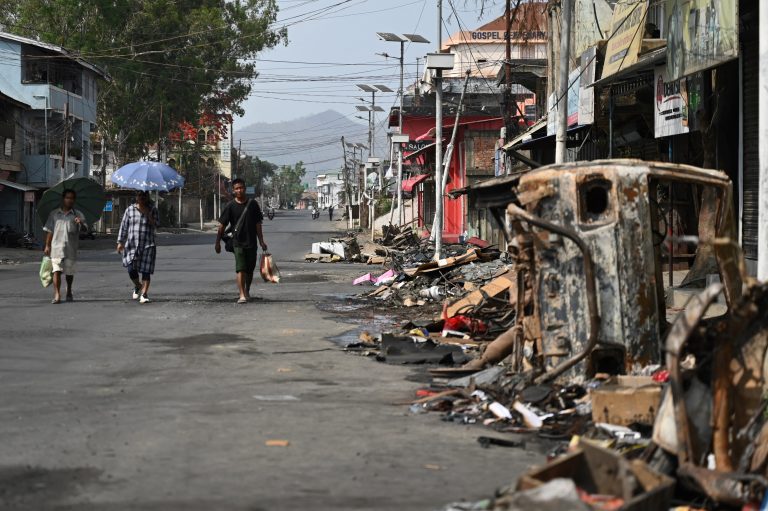In one week, sixty people were killed in hostile ethnic clashes in the Indian state of Manipur, where tens of thousands of people were displaced from their homes due to deadly ethnic clashes. Authorities have been ordered to defuse the situation as districts recover from the shock.
Neighborhood at war
Other than the sixty deaths, N Biren Singh, the chief minister of Manipur, said in a press conference on May 8 that more than 230 were wounded in the violence. Around 1,700 houses, along with many vehicles, were left burning, forcing thousands to leave their homes and into relief camps.
Singh added that more than 20,000 people “who were left stranded in relief camps” were safely moved out, with another 10,000 left to await their own freedom.
Evacuations were underway as other states raced to bring back their own residents from Manipur.
The violence began last Wednesday, when a protest by the Kuki tribal group led to clashes with the Meitei non-tribal group. The Meitei community mainly consists of Hindu people, centering in the state capital of Imphal with 3.5 million living there, as per India’s last census in 2011.
Success
You are now signed up for our newsletter
Success
Check your email to complete sign up
Members of the Meitei community have been requesting for inclusion under the Scheduled Tribe category, a constitutionally-recognized designation that grants tribes and communities access to forest lands and certain government jobs and places in educational institutions.
“The Meiteis claim they are marginalized as compared to the other mainstream communities,” journalist Arunabh Saikia said.
The mostly Christian Kuki tribe, along with other tribes like the Naga based in the Churachandpur district, feared that they would lose control over their ancestral forest land should the Meiteis be allowed into the Secluded Tribes.
“The tribes believe granting ‘Scheduled Tribe’ status to the Meiteis would be an infringement of their rights as they claim to be the marginalized part of the population, not the Meiteis,” Saikia told al-Jazeera.
“They see [the Scheduled Tribes status] as the Meiteis eating into their pie,” he added.
Tensions between the communities have been around for some time, but the Schedule Tribes issue became the trigger for the recent attacks.
More than 50,000 Kukis and members of the other predominantly Christian tribes held protests against the Meiteis’ demands, culminating in clashes between the two communities. Mobs attacked homes, vehicles and places of religion, which led to the sixty deaths. Some were also reported to be armed with weapons, looted from security forces.
READ MORE:
- India Set to Surpass China With World’s Largest Population
- Fighting in Sudan Explodes Between Army and Paramilitary Forces, International Community Condemns the Violence
- Pakistan Wants To Circumvent Petrodollar, Paying Yuan For Russian Oil
‘Shoot-on-sight’ orders
Eventually, thousands of troops were sent to Manipur to control the situation, slapping a curfew on several districts and restricting internet access. The state governor also issued a “shoot-on-sight” order for the military to stop any “extreme case.”
On Sunday, the curfew was lifted in the Churachandpur district, along with several other districts, the Hindustan Times reported. The army claimed that there was no new “major violence” overnight.
On Monday, India’s Home Minister Amit Shah told India Today that the situation was under control, assuring the people to remain at peace. The Indian Supreme Court, worried over the violence, requested a report on relief efforts after a week.
According to N Biren Singh, 1,041 guns and 7,460s rounds of ammunition were plundered from security personnel during the clashes, AP News wrote.
Despite the efforts, the people are still concerned about their wellbeing.
“We don’t feel safe right now,” L Sanglun Simte, a resident of Imphal who was stranded outside Imphal airport with his family, told AFP news agency.


















